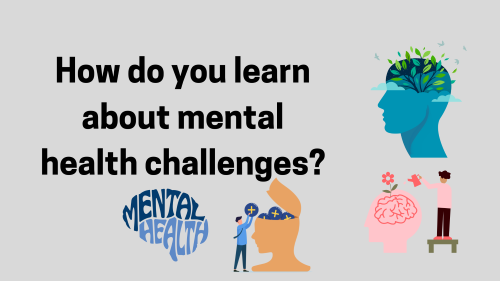
How do you learn about mental health challenges and treatments?
- Reliable Sources of Information
- Engaging with Mental Health Communities
- Educational Resources
- Practical Strategies for Managing Mental Health
- Staying Proactive
Introduction
Maintaining emotional well-being and providing assistance to others requires staying aware of mental health challenges and coping mechanisms. Despite the deluge of available information, it might be challenging to separate false details from trustworthy sources. This article offers helpful strategies for staying current on mental health issues.
Reliable Sources of Information
1. Professional Organizations
Organizations such as the American Psychological Society, the National Alliance on the State of Mental Health, and the World Health Assembly (WHO) provide current, evidence-based information about mental health challenges and treatment choices.
2. Peer-Reviewed Journals
Up-to-date information and in-depth analysis may be obtained by reading publications published in peer-reviewed journals like the Journal of Clinical Psychology or the Journal of Mental Health.
3. Government Health Websites
You may get trustworthy, fact-based information on mental health on websites like those run by the Prevention and Control of Diseases (CDC) and the National Institute of Mental Disorders (NIMH).
Engaging with Mental Health Communities
1. Support Groups
Attending in-person or virtual support groups can offer personal knowledge and helpful guidance on handling mental health concerns.
2. Online Forums
Participating in online forums like Reddit’s r/ mental health or certain mental health communities can keep you informed and connect you with people who have gone through similar things.
3. Social Media
You may get regular updates and insights by following respectable mental health groups and practitioners on social networking platforms such as Instagram, Twitter, LinkedIn, etc.
Educational Resources
1. Books and E-books
Reading books authored by mental health specialists can provide in-depth information on a range of subjects. Bessel van der Kolk’s “The Body Keeps the Score” and Dennis Greenberger and Christine Padesky’s “Mind over Mood” are two well-known books.
2. Podcasts and Webinars
These accessible sources of information about cutting-edge tactics and research include expert-hosted podcasts and webinars on mental health.
3. Online Courses
Completing online courses on mental health issues through sites like Coursera or Udemy may offer organized instruction and frequently lead to accreditation.
Practical Strategies for Managing Mental Health
1. Mindfulness and Meditation
Developing these skills can help lower stress and enhance emotional control. Guided sessions are available via apps like Calm and Headspace.
2. Physical Activity
Studies have indicated that regular exercise improves mood and mental health in general. Including exercises like yoga, walking, or team sports might be advantageous.
3. Balanced Diet
Fresh produce, lean meats, and whole grains improve mental and emotional health.
4. Sleep Hygiene
Keeping a regular sleep routine and setting up a comfortable space can help with mental health. Try to get seven to nine hours each night.
5. Journaling
Keeping a journal may be a therapeutic way to manage emotions and monitor your development in terms of mental health.
Staying Proactive
1. Frequent Check-ins
Evaluate your mental well-being on a regular basis, considering your feelings, stress levels, and coping techniques. It will help you determine when you need further assistance.
2. Professional Support
When in need, don’t be afraid to ask therapists, counselors, or other mental health specialists for assistance. They are able to provide customized plans and actions.
3. Lifelong Learning
Develop the habit of being inquisitive and always looking for fresh knowledge about mental health. You may stay updated by subscribing to newsletters from reliable sources.
Conclusion
Maintaining awareness regarding mental health concerns and coping mechanisms is essential for both your well-being and the well-being of others around you. You may stay informed and proactive in preserving your cognitive health by using educational tools, participating in mental health communities, gaining access to trustworthy resources, and putting into practice workable techniques.
Recall that skillfully managing the intricacies of mental health requires ongoing learning and self-awareness.
